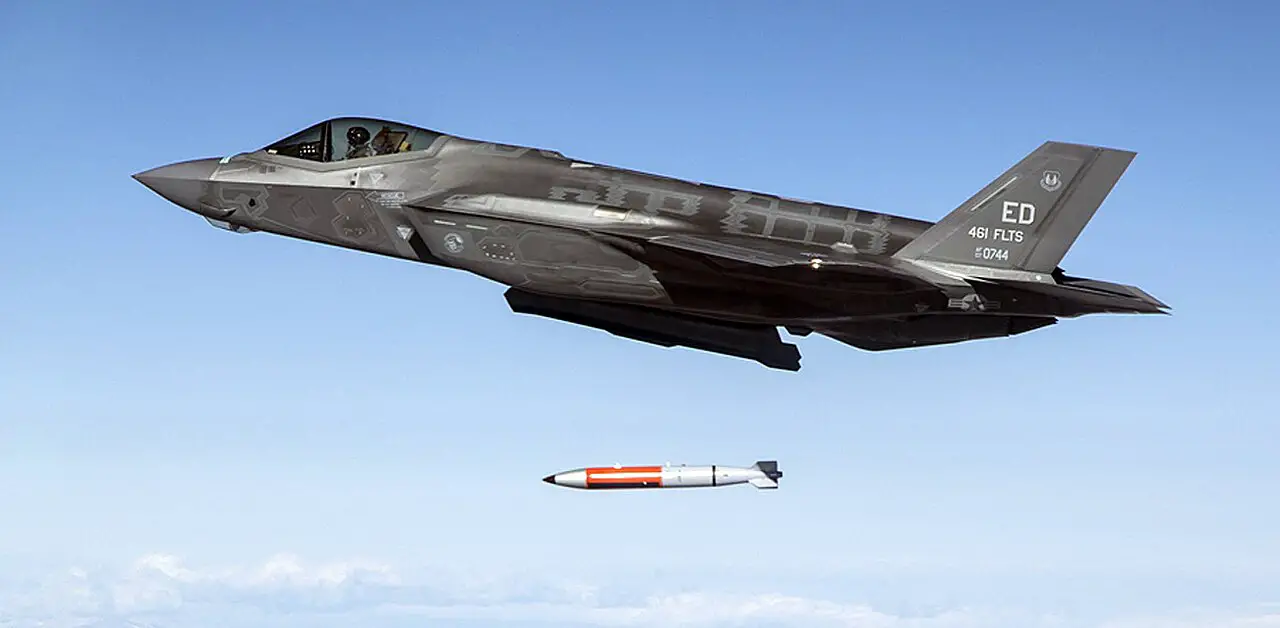The F-35A Joint Strike Fighter has officially gained operational certification to carry the B61-12 thermonuclear gravity bomb, marking a historic moment for modern defense capabilities. This certification, announced by Russ Goemaere, a spokesperson for the F-35 Joint Program Office (JPO), was achieved ahead of schedule on October 12, months before the initial pledge to NATO allies for completion by January 2024. Breaking Defense reported that the F-35A’s newfound capability transforms it into a “dual-capable” aircraft, capable of deploying both conventional and nuclear weapons. Goemaere emphasized the significance of this achievement, stating, “The F-35A is the first 5th generation nuclear-capable aircraft ever, and the first new platform (fighter or bomber) to achieve this status since the early 1990s.”

While the specifics of the certification process remain classified due to US disclosure policy, it is clear that the F-35A is now certified to carry the B61-12 variant, intended to replace older models. Notably, this certification does not extend to the F-35B and F-35C variants, designed for short takeoff and vertical landing and carrier-based operations, respectively. The geopolitical context of this development is underscored by the Federation of American Scientists’ analysis, revealing that NATO allies Belgium, Germany, Italy, the Netherlands, and Turkey currently house approximately 100 older variants of B61 bombs. With the first four nations planning to operate F-35s, the need for a nuclear-capable aircraft played a pivotal role in Germany’s decision to join the F-35 program.

The B61-12 bomb, part of the United States Enduring Stockpile, offers variable yield capabilities, ranging from 0.3 to 340 kilotons in various modifications. Lockheed Martin, the manufacturer of the F-35, emphasized the aircraft’s role as the world’s only 5th Generation multi-role stealth fighter and reiterated its commitment to advancing capabilities to stay ahead of emerging threats. While a specific delivery schedule for B61-12s to Europe remains unclear, Politico previously reported plans to begin shipping the bombs in December 2022. The US Air Force Air Combat Command revealed that all F-35As in its inventory are expected to be in a nuclear-certified configuration in the future, although operational details were not disclosed.

The B61-12 Life Extension Program, initiated to refurbish and modernize the aging B61 series, achieved several milestones, including successful non-nuclear system qualification flight tests. The first B61-12 bomb was produced in November 2021, replacing older B61 mod 3, mod 4, and mod 7 bombs, while retaining the B61-11 in the stockpile. The program aims to extend the B61’s life by at least 20 years. Critics, including Russian Deputy Minister of Foreign Affairs Alexander Grushko, have voiced concerns over the increased accuracy of the B61-12, accusing the US government of “reducing the nuclear threshold.” Despite such concerns, the F-35A’s certification for the B61-12 represents a significant leap in defense capabilities, underscoring the aircraft’s adaptability to evolving global security needs.
















